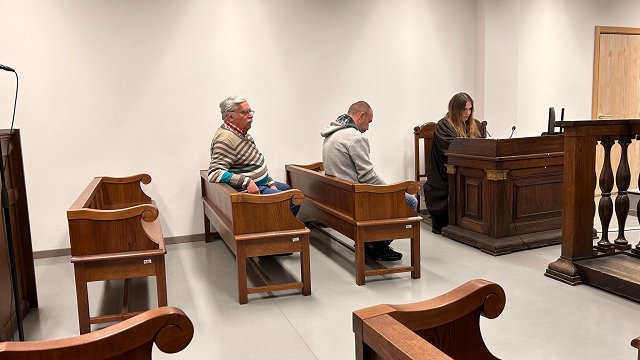An EU directive of May 30, 2018, stipulates that Member States must take the necessary measures to ensure that by 2035, the landfilled waste volume is 10% of all waste or less than that. The Latvian figures are currently above 50%.
To achieve the EU goal, Latvia started building biowaste processing plants. The first one was built at the Getliņi landfill in 2021, and another one was unveiled last year in Liepāja. The Getliņi plant is ready to process 100,000 tonnes of biowaste per year, but there is currently very little to do.
In Latvia, municipalities are responsible for the sorting of waste. The deadline for municipalities to ensure a system of biowaste collection was December 31, 2023. What the system looks like is in the hands of the municipality.
"What does it mean – mandatory? Mandatory means that in accordance with the waste management law, waste generators partake in a system created by the municipality and determines what and how to do," said a representative of the Environmental Protection and Regional Development Ministry Rudīte Vesere.
As found by AP, most waste managers ask that residents turn to their house manager with a wish to sort biowaste, and the house manager then contacts the waste manager. Meanwhile, Getliņi Eko's survey of last autumn found that 78% of Latvian citizens knew nothing about the obligation to sort biowaste; therefore, it is hardly a surprise that there is no responsiveness.
In order for the processing plants to have something to do, Getliņi held a campaign informing residents about how to ask for the containers and how to sort biological waste. As a result of this campaign, one of the largest waste managers Clean R installed over 1,000 containers in Rīga 1.5 years ago, but the number soon shrank to around 400, both due to the unwillingness of residents to sort and complaints about smell among other trivial excuses.
Residents have to pay 40% less for the collection of biowaste than municipal waste – that is, there is a 40% discount. However, in order for the discount to be valid, bio-waste must be truly organic.
"Waste should be tossed in a bio-container without any packaging. So if you're going to throw in bags, there are only two options, either special biodegradable compostable bags that will eventually break down with the waste, or bags that are pure paper only," explained Clean R Client Center call handling operator. “If there's litter, like municipal waste, some kind of animal feces, then it's impure.”
If the composition is impure, the 40% discount is not applied and the full price for collecting the waste must be paid.
The Environment Ministry's representative Rudīte Vesere said that it has decided to motivate municipalities to more actively tackle the issue. There will be minimum goals of sorted types of waste, and if it is not met, the local government will get less financing from the natural resources tax revenue. The goals to be met are still being developed.
The Waste Management Law also provides for administrative penalties for non-participation in municipal waste management organized by the local government – for a natural person from 10 to 150 fine units, while for a legal person – from 50 to 300 fine units. The minimum penalty is therefore a warning or EUR 50 for not participating in the system, which can be further clarified by the municipality itself. At the moment, however, no penalties have been applied to anyone.
Concerns have been raised that the target of landfilling up to 10% of municipal waste set for 2035 is also at risk in the long term. If Latvia does not improve its performance in waste management, fines may also apply, however, according to VARAM representative Vesere, the fine would not be all. as the State pays the so-called delay charges - certain amounts until the specific targets are met.

























